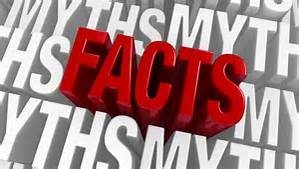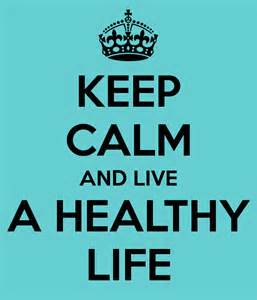We live in a world of extremes. For those who want to follow the Rambam’s sensible way of living, a balanced path of diet and exercise, seems elusive. In the last few decades, we have been treated to low carbs, high protein, low fat, low sugar, no sugar, high carbs, gluten free, etc. It’s as if the quick fix elimination diet is the only way to achieve what we want. But the statistics are telling us that most people who are trying all these radical approaches to diet are not achieving much of anything. Certain foods are perceived to be super-foods and the cure-all for all that ails us. Other foods have picked up a reputation for being avoided-at-all costs foods.
Too many people consider carbohydrates as the “evil doers.” They consider carbohydrates the food group that can lead to obesity or diabetes. But it’s all a myth!
Carbohydrates are needed

Don’t be misled by fad diets that make blanket pronouncements on the dangers of carbohydrates. They provide the body with the fuel that it needs for physical activity and for proper organ function. Carbs are an important part of a healthy diet! Carbohydrates are found in a wide array of foods – bread, beans, milk, popcorn, potatoes, cookies, spaghetti, soft drinks, corn, cakes and crackers. The most common and abundant forms are sugars, fibers, and starches.
The basic building block of every carbohydrate is a sugar molecule. Some contain hundreds of sugars. The digestive system handles all carbohydrates in much the same way – it breaks them down (or tries to break them down) into single sugar molecules. Only single sugar molecules are small enough to cross into the bloodstream. The digestive system also converts most digestible carbohydrates into glucose (also known as blood sugar), because cells are designed to use this as a universal energy source. Carbs are absolutely needed and are a chief source of energy and nutrition.
Types of carbohydrates
Some kinds of carbohydrates are far better than others. Fruits, vegetables, and whole grains are necessary and crucial to consume. Whole grains digest slowly and therefore insulin is secreted in a slow and even way. Refined grains offer very little in the way of nutrition and can cause insulin resistance over time. Eating too many white-flour or refined-sugar products can cause insulin spikes.
Too much or too little?
In a recent study in Lancet Public Health, Sara Seidelmann, MD, and colleagues examined the association between total carbohydrate intake and mortality in over 15,000 adults in four U.S. communities over approximately 25 years. The authors then went on to meta-analyze data from seven multinational cohort studies, representing a total study population of well over 400,000 people.
Their conclusion, published in the Lancet, is that moderate intake (50%-55% of total calories) of total carbohydrate is associated with lower mortality than either higher or lower levels. This reaffirms the merit of moderation, as opposed to extreme or fad diets, and the fact that we do indeed need to eat carbs.
But where this study falls short is that it doesn’t differentiate between kinds of carbs. Much like the flawed original food pyramid, there isn’t any way to distinguish between good choices, like whole grains, brown rice, vegetables and fruits versus white pasta, white bread and processed sugar. This is a very big mistake. We definitely need carbs, but what kind we eat makes a very big difference in terms of our health.
Reevaluating the carbs we eat
David L. Katz, MD, MPH, is a founding director of the Yale-Griffin Prevention Research Center and founder and president of True Health Initiative. Dr. Katz states that the study published in the Lancet is misguided and harmful. If we simply focused on wholesome foods in a balanced, sensible way the level carbohydrate consumption would be far less relevant. He goes on to indicate that quite high and rather low intake of carbohydrates can both happen with eating better and worse carbs.
Worse patterns, sadly, prevail in modern societies, both among the affluent and the poor. Affluent societies derive many of their carbohydrate calories from refined flour and added sugar; poor societies, particularly in Asia, may be food insecure and as the authors note, derive calories disproportionately from white rice.
The better patterns, particularly for high carbohydrate intake, may, however, be associated with exceptionally good health outcomes. This type of pattern is associated with wonderful cardiovascular health. Thus, while fundamentally sensible, and indisputably preferable to the misguided extremes that are currently prevalent, the case for moderate carbohydrate intake might discredit much better alternatives.
In other words, what Dr. Katz is saying is that if one would eat only healthy carbs and keep poor quality carbohydrates to a bare minimum, then maybe a high-quality carb diet could be even more beneficial than the moderate amount of all carbs the study published in The Lancet indicates.
Here are a few tips from the Harvard School of Public Medicine on how to include carbs in your day:

- Start the day with whole grains. Try a hot cereal, like whole oats, or a cold cereal that lists a whole grain first on the ingredient list and is low in sugar. Learn how to be a savvy reader of breakfast cereal labels. Sugars are often times hidden.
- Use whole grain breads for lunch or snacks. Look for bread that lists as the first ingredient whole wheat, whole rye, or some other whole grain – and even better, one that is made with only whole grains, such as 100% whole wheat bread.
- Bag the potatoes. Instead of potatoes, try brown rice, bulgur, wheat berries (with the entire kernel intact), whole wheat pasta, or another whole grain with your dinner.
- Choose whole fruit instead of juice. An orange has two times as much fiber and half as much sugar as a 12-ounce glass of orange juice. Juice can also be less filling.
- Bring on the beans. Beans are an excellent source of slowly digested carbohydrates as well as a great source of protein. They can be cooked in a very tasty way.
Combined with the right type of proteins and fats, carbs are an essential ingredient to keep you feeling full in addition to the essential nutrition that it brings. Another advantage? Including whole grains, veggies and fruits in your overall diet will help prevent constipation and new research indicate how these foods are very important to keep you microbiome (gut bacteria) in proper balance.
Balance and moderation are really important. That goes for our eating and our exercise, too. Absolutely eliminating an entire food group might bring a short term fix, but it will also bring long term failure. What is even more important is that there will be a negative effect on your long term health. Don’t be sucked in by fad diets and fake rumors about what is good for you and what is not. We all need proper nutrition to avoid illness and disease. So make sure you are getting your proteins, healthy fats and yes, healthy carbs as well so you can “add hours to your day, days to your year and years to your life.”

Hi Alan,—This is persoana. Please do not post.
Well I am trying to follow Dr, Micheal Greggers diet without a lot of success. I am trying it for health and to lose weight. I have not been losing weight but I can say that I am feeling preetty good, B.H.. Am I right that you advocate such a eating plan? I am thinking that I need more support. I know that my husband Yechiel, liked working with you. Maybe we could both come back to you. Would you be able to offer us a deal if both of us come to you. Or, maybe, I could come alone. But, I really want to know if you think that this is the way to go for eating.
Thank you. Purim samaiach, if you read this on Prim and Shabbat Shalom.
Sincerely,
Tova Nussbaum
Once again this entire carb debate treats humans as if we are all the same. WE ARE NOT. The most important determiner of how much (% wise) complex carbs we should eat is our genetics. So far Apolippoprotein E (variants 2,3,4) is a good indicator of that percentage. We get 2 genes, one from each parent so those people with 2/2 or 2/3 can thrive on a very low carb diet provided that they fill the missing calories with more plant based oils and fats; not more animal fats. In the Lancet study mortality decreased on the low carb diets up to a point, then increased. But when they looked at the subgroup who substituted calories with plant based oils and fats, the mortality increase did not occur in that subgroup. Variants 3/3 and 2/4 need to eat more carbs; while variants 3/4 and 4/4 should eat the most carbs and never go on a low carb way of eating. Never-the-less for all groups, we are speaking about carbs that digest slowly. Everybody should buy glucose meters and start checking their blood sugars at 30 min, 1 hr and 2 hrs after eating. Blood sugar should not go over 140-150 mg/dl. How we digest those complex carbs also depends on our gut microbes. So we each need to test how we respond to the carbs we eat. Also keep in mind carb digestion is slowed by fat and protein ingestion at the same time. (Once a person has tested many carbs, one does not need to keep retesting the same carb sources). High blood sugar is the greatest driver of arterial inflammation which is in turn the greatest driver of all degenerative diseases. This Is The Main Reason We Need To Be Careful With Carbs Even When Our Bodies Must Have Carbs.
Thank you for an informed and intelligent response. Everyone is different when it comes to everything, not just carbs. We know that. And here is what else we know. Good microbiome health is integral to all aspects of health and as you mention keeping inflammation in check is also very important. And if you want to keep inflammation in your endothelial cells in check, and change your microbiome for the better, then you have to stay away from (as much as possible) animal proteins. So yes, people need to be conscientious of how much of what kind of carbs we eat. No junk food or processed food, that’s for sure. But one of the great results we have seen through some of the research of Dr. Neal Barnard and Dr. Michael Gregor and others is that when you make that change, no processed foods and little or no animal proteins, inflammation is reduced, even with consumption of more starch and grains. But to your point about people not being the same in terms of their reaction to various carbs (and food in general), I’m all in.